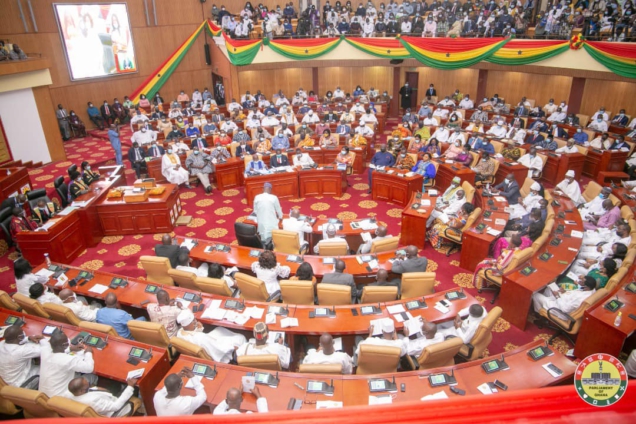Parliament has amended sections of the Criminal Offenses Act of 1960, which makes attempting to take one's own life a crime.
Following the amendment in Parliament on Tuesday, March 28, persons who attempt suicide will be considered as having mental health issues requiring assistance by law rather than imprisonment.
Some legislators had earlier kicked against calls to decriminalise attempted suicide.
In 2019 during a conversation in Parliament on whether to decriminalise the act or not, former Minority Leader Haruna Iddrisu said that attempt to commit suicide should be considered a crime and not be pardoned.
The Tamale South MP stated that calls to decriminalise the act should not be heeded and said suicide is unacceptable behaviour.
He added that the culprits of the act should be punished to deter others, especially the youth from engaging in the act.
“You do not want to think that when you have depression and distress, the ultimate thing is that you go and take your life since you cannot recover your life back,” he stated.
However, the Mental Health Authority CEO, Prof Akwesi Osei during the launch of a call centre in Accra, disclosed that it has initiated steps to have suicide decriminalised, saying it is a medical condition that needs health support rather than imprisonment.
This follows the “unprecedented wave” of suicide and attempted suicide cases, especially among the youth in 2017.
Prof Osei noted that even the choice of words used to describe suicide-related cases is worrying and stated that an attempted suicide should not be criminalised.
“I am trying harder not to say ‘people who wanted to commit suicide’ – it’s a language we want to move away from. So, don’t say ‘somebody who committed suicide’ because that criminalises the offence.
“We are trying to get us to understand that attempted suicide is not a crime, even though we don’t encourage it. It is [rather] a condition that requires support, largely mental illness.
“So, in all our discourses, let’s move away from ‘committed suicide’ to say ‘take his/her life by suicide’ or ‘die by suicide’,” he said.
To this end, Ghanaian health experts have since pushed for the law to be changed, saying attempted suicide is a medical condition that needs health support rather than imprisonment.
Some survivors of attempted suicide had also called for resources to be spent on prevention.
Meanwhile, 1,500 cases of suicide are reported nationwide every year.
Latest Stories
-
Bayer Leverkusen’s Jeremie Frimpong arrives in Ghana for visit
12 minutes -
‘It will be disastrous if Mahama removes the Chief Justice’ – Prof. Stephen Adei
14 minutes -
Jean Mensa must step down as EC Chair – APC and Movement for Change assert
33 minutes -
Akufo-Addo calls on police to refine strategies to avoid prolonged electoral unrest
38 minutes -
Only NPP looting brigade unhappy about ORAL – Ablakwa
39 minutes -
CSIR-SARI introduces integrated soil fertility management technology to boost maize production
40 minutes -
Ghana’s indigenous agribusiness faces challenges impacting economic growth – Dr. Azinu
42 minutes -
41-year-old man arrested over illegal power connection
44 minutes -
65-year-old man plans to walk over 250-km Kumasi-Accra journey for Mahama’s swearing-in
45 minutes -
Woman dies after being set on fire on NYC subway
2 hours -
Elon Musk’s curious fixation with Britain
2 hours -
EBID wins the Africa Sustainability Award
4 hours -
Expansion Drive: Takoradi Technical University increases faculties
9 hours -
SHS heads demand payment of outstanding funds before reopening of schools
9 hours -
We thank God for the 2024 general elections – Akufo-Addo
9 hours

